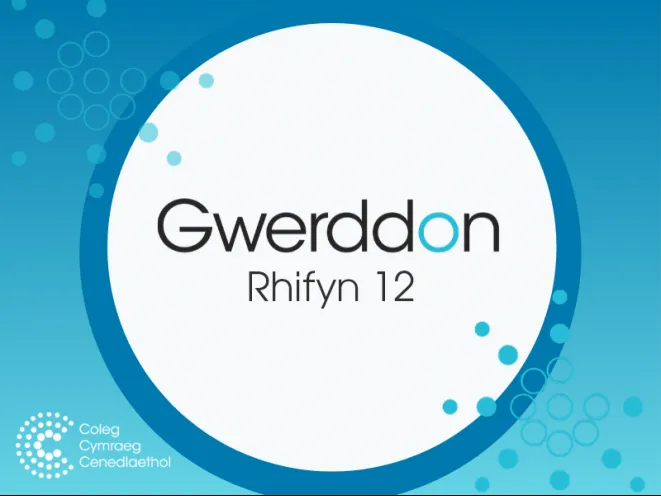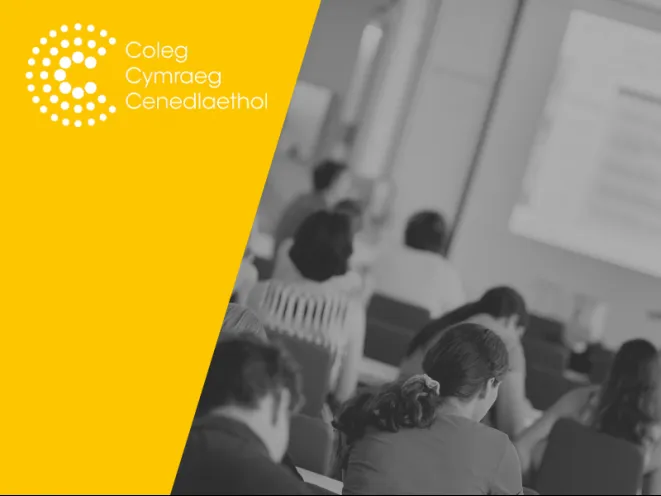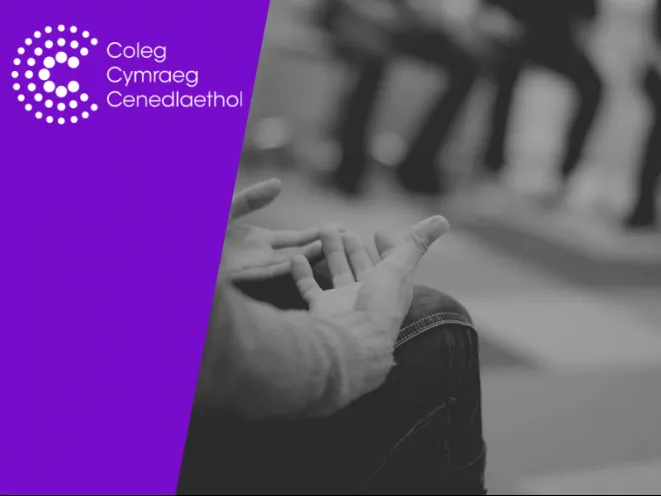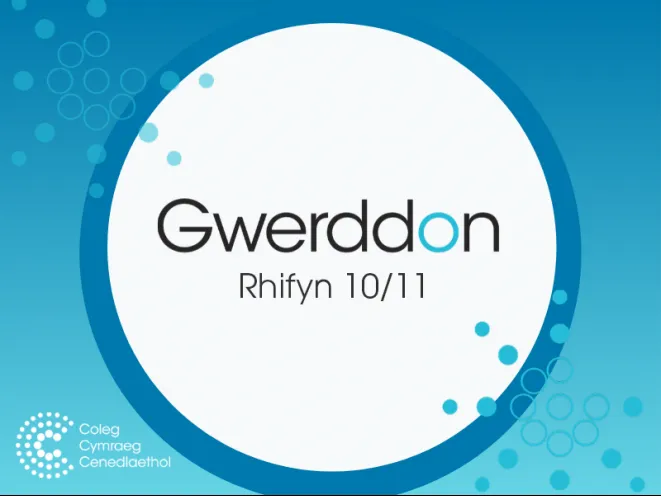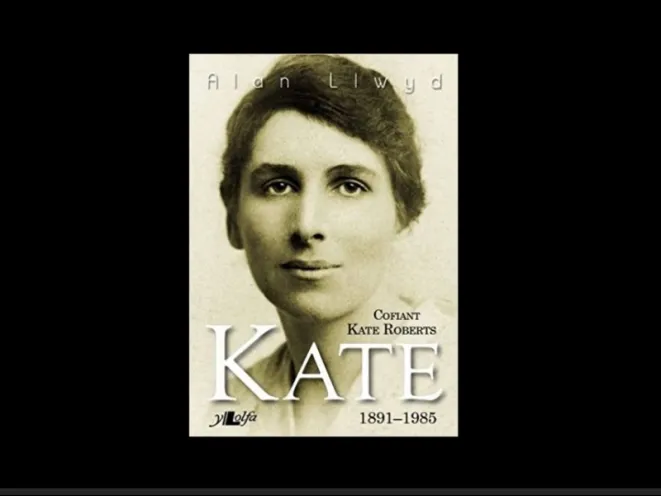This article compares the renowned letters of Kate Roberts and Saunders Lewis with the correspondence of two leading nineteenth-century French authors, Gustave Flaubert and George Sand, considering the value and purpose of letters between authors. In addition to widening our understanding of Roberts and Lewis’s works, the article also places the Sand-Flaubert correspondence in a new context, and considers the development of authorial correspondence over the decades. It draws original conclusions by revealing that literary letters continue to play a key role for writers in the twentieth century: offering encouragement and advice, a means of escape from current circumstances, and an important tool in the struggle against the emptiness of modern society.
“Daring to live": Work-life balance in the letters of George Sand and Gustave Flaubert, Kate Roberts and Saund...
Astudio Busnes Drwy Gyfrwng y Gymraeg
Cyfres o glipiau digidol yn pwysleisio’r manteision o astudio a gweithio trwy gyfrwng y Gymraeg ym myd Busnes.
Academi Cynhadledd Achos
Mae'r clipiau yma yn olrhain hanes cynhadledd achos er mwyn gwarchod plant. Mae’r clipiau yn cynnig enghraifft i fyfyrwyr o’r modd y cynhelir Cynhadledd Achos. Yn yr achos hwn, trafodir dau blentyn ifanc o’r enw Siân a Dylan. Mae Siân yn bump oed, a Dylan yn fabi deunaw mis oed. Pwrpas cynnal y Gynhadledd Achos yw i benderfynu a ddylai’r plant barhau ar y gofrestr amddiffyn plant ai peidio. Mae'r fideo wedi ei rannu mewn i 8 rhan. Dychmygol yw’r cymeriadau yn yr adnodd hwn, ond mae’r math yma o sefyllfa yn gyffredin iawn o fewn cyd-destun y Gynhadledd Achos.
Choice and the citizen? Health decisions and their implications for developing a Welsh citizenship
Health services offer a privileged space to define the proper relationship of the citizen and the modern state. Individuals have been expected to make choices in health care in Wales and England since the 1980s. A new vaccine against some types of cervical cancer was recently introduced for girls. Parents are expected to consent on behalf of their daughters. This paper reports the results of the largest qualitative study in this area world-wide. It depicts attitudes to health care choice and discusses parents’ experiences of consenting or not. Parents’ decisional strategies in the face of uncertainty are analysed. Consequences of the study relate to the individuals’ relationship with the Welsh National Health Service (NHS) and to developing a concept of Welsh citizenship.
Alan Llwyd yn trafod Cofiant Kate Roberts
Darlith gan Alan Llwyd ar Kate, ei gofiant i Kate Roberts. Recordiwyd y ddarlith yn Ysgol y Gymraeg, Prifysgol Bangor, ym mis Mawrth 2012. Cyllidwyd y digwyddiad drwy gyfrwng grant bach gan y Coleg Cymraeg Cenedlaethol.
The sun's corona: A study of the structure of the sun's atmosphere
The knowledge we have about the sun’s corona is based on observations made from afar. It is impossible, therefore, to speculate about the three-dimensional structure of the corona directly. This article outlines the history of the study of the structure of the corona, and describes new techniques which for the first time enable us to know the structure of the corona in detail. A description is given of the change in the structure over the life cycle of the sun, together with new information about the connection between the magnetic field and coronal density and new results concerning the rotation rates of the corona. The results show that knowledge about the corona can be greatly increased by applying new tomography techniques, enabling and stimulating further studies of the corona in years to come.
An analysis of the use of code-switching by student teachers in a bilingual Secondary School class: A case fro...
The literature contains many studies on code-switching. The socio-cultural method of studying networking in the classroom as described by Mercer (2000) is based on a detailed analysis of the discourse of language classes. Mercer noted a number of linguistic techniques used by teachers. This article analyses the views of trainee-teachers on code-switching as a practice in the classroom. In the study, the class practice of two trainee teachers, bilingual in Welsh and English, was examined. The two were observed and their teaching recorded. Interviews were also held with the trainee teachers to ask them about their attitudes to the use of the first language in a secondary-school class where English is a second language. The collected data is analysed using Critical Discourse analysis methods. Specific consideration is given to what extent the trainee teachers succeeded in teaching in a way that was within the attainment of the bilingual pupils under their care. The occasions when the teachers switched from English to Welsh for a minute could be seen to correspond to the code-switching functions noted by Camilleri. The code-switching suggests a legitimate way of using common linguistic resources as a teaching support in the classroom.
The effect of language on physical rehabilitation: A study of the influence of language on the effectiveness o...
In an area of Wales where 50% of the population is bilingual one community physical rehabilitation service had no Welsh-speaking therapists. An internationally standardised outcome measure was used to assess the effectiveness of rehabilitation in this area. This revealed that Welsh speaking patients had significantly poorer results from rehabilitation than non-Welsh speakers (p<0.05), while there was no significant difference where the therapists were bilingual. The results suggest that therapists’ ability to speak patients’ first language impacts on therapy effectiveness. The percentage of individuals who could speak Welsh referred (by health or social care professionals) was compared with the percentage of Welsh speakers which would have been anticipated given the percentage in the general population. Significantly fewer Welsh speakers were referred to the rehabilitation service than the anticipated percentage (p<0.001). Whilst this suggests professionals’ inability to speak Welsh may impact negatively on access to services for Welsh speakers, there may be other multifactorial psycho-social reasons to consider.
'The sound of fighting in our ears': Presenting the Great War in Welsh
The Great War was one of the most important events in Welsh history, the ramifications of which have seriously affected the society and culture of the country for decades. However, the history of the years of fighting has often been presented to a Welsh-speaking audience in an oversimplified way, emphasising the horrors of the War without considering the context. This study briefly traces how the way the War has been presented in Welsh-language programmes over the decades, before considering in detail some of the problems arising from that presentation of the slaughter.
Predicting contributions by the last glaciers of Eryri (Snowdonia) to Younger Dryas carbon cycling
The concept of glaciers as active ecosystems is strongly supported by evidence of significant contributions to global carbon and macronutrient cycles by extant glaciers. Regrettably, the roles of glacial ecosystems in past glaciations are generally overlooked. Therefore we reconstructed glacial habitats and carbon fluxes on the last glaciers of north Wales at their maximum extent during the Younger Dryas chronozone glaciation. Net uptake of 30-180 kg C of CO2 and emissions of 265-1591 g C CH4 per annum are estimated for the palaeoglaciers. This emphasises the hitherto unexplored potential for the last Welsh glaciers as actors in biogeochemical cycles; however our understanding could be extended by linking our knowledge of contemporary glacial ecosystems with analyses of sedimentary biomarkers and thermomechanical models of Devensian ice mass dynamics.
'One Cry Four Voices': The influence of choral singing on health and welfare in Wales
Since the Nineteenth Century, choral singing has played a prominent part in Welsh culture and society. In the latter part of the Twentieth Century, there were increasing demands to consider the influences of quality of life and well-being on health. As a result, there is a growing field of research that considers the role of the community arts, and choral singing in particular, as social capital, and the way in which they can influence personal and social health and well-being. Due to this growing recognition, this article will consider research that examines the relationship between amateur choir-singing in Wales – as both a musical and social event – and general health and well-being.
A pilot study of the speech errors of candidates of the WJEC Use of Welsh examinations
This paper is based on a pilot study aimed at defining and identifying the most common speech errors made by candidates for the WJEC’s Use of Welsh examinations at Intermediate and Advanced Levels in the CQFW, during the oral tests associated with these examinations. The paper explores how the speech errors observed can be classified, and if it is possible to use the resulting data to discover whether they can be regarded as linguistic variables in their own right and used to explore their relationship with non-linguistic factors such as context, age, upbringing and social background as part of a comprehensive study based on a much larger sample of informants.

